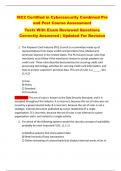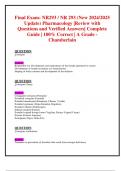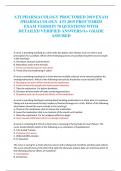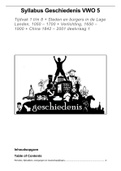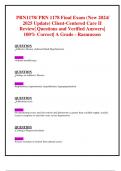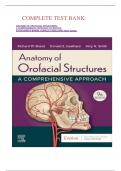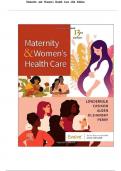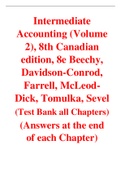Exam (elaborations)
ISC2 Certified in Cybersecurity Combined Pre and Post Course Assessment Tests With Exam Reviewed Questions Correctly Answered | Updated For Revision
- Course
- Institution
ISC2 Certified in Cybersecurity Combined Pre and Post Course Assessment Tests With Exam Reviewed Questions Correctly Answered | Updated For Revision 1. The Payment Card Industry (PCI) Council is a committee made up of representatives from major credit card providers (Visa, Mastercard, ...
[Show more]
